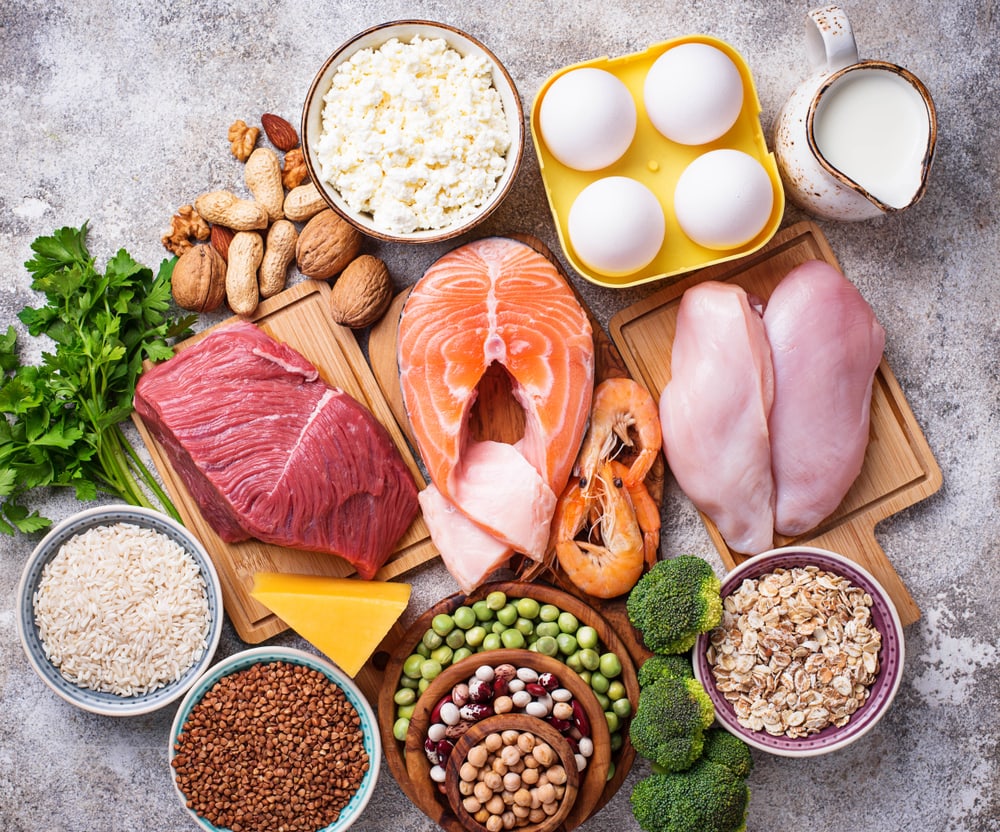Many people in the West — generally speaking, developed countries such as the US, Canada, UK, France, and Germany — have no difficulty getting enough in their diets. However, plenty of people do, despite adequate access to nutrient-rich food in this part of the world. Reasons can range from lack of awareness about the need for enough protein to a calorie-restricted diet that does not allow enough protein. The consequences for not getting enough are pretty serious and far-reaching, wreaking havoc on every aspect of your health. Keep reading to learn more about protein, why you need it, and what can happen if you do not get enough.

40. What Is Protein?
Protein is a macronutrient, meaning that your body requires it in substantial amounts throughout the day. There are many different kinds of protein, and each one is a giant molecule made up of 20 different amino acids (via Self). Amino acids are involved in every part of your body, from making up your blood cells to hair to skin. While many people may think that they only need protein to help build muscle, the fact is that protein is necessary for every bodily function (via Eating Well).
